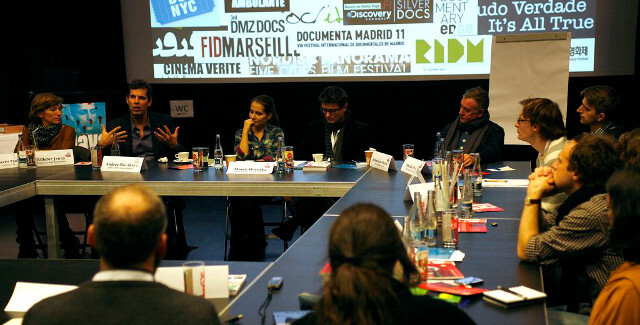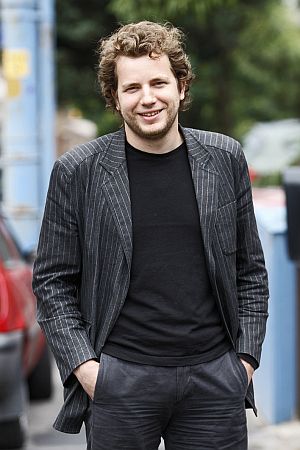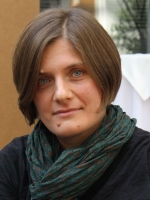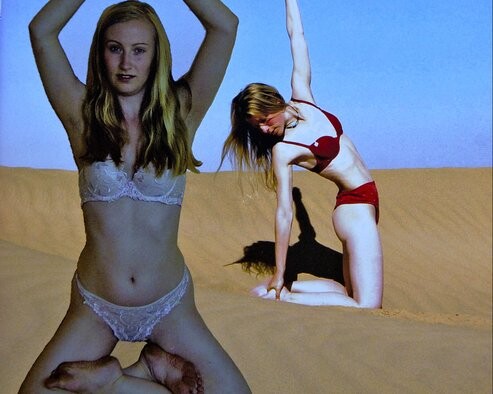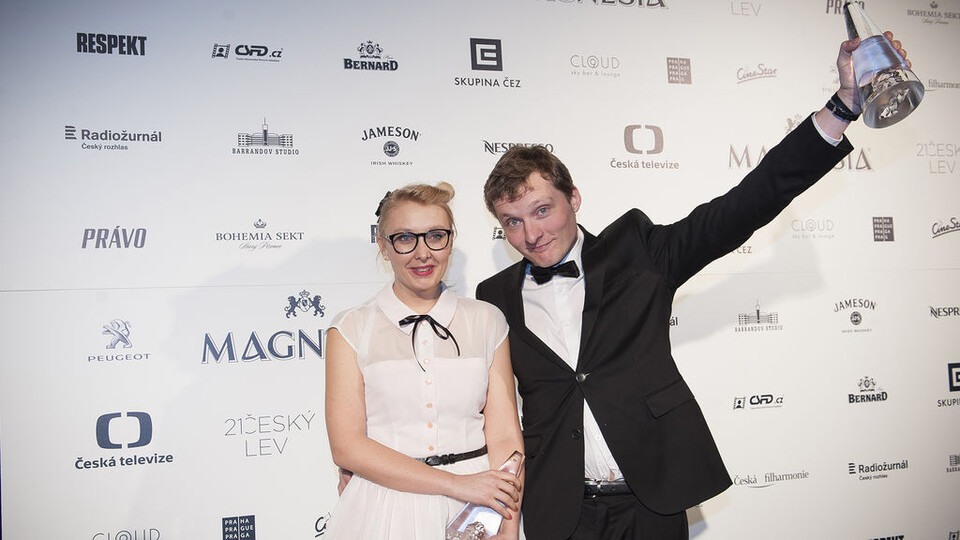Festival Identity
IDFF Jihlava has always been a place where many festival programmers came to search for new films from our region. The Festival Identity program gave them an opportunity to be closer to each other and to share their experiences. Not only that, there also is a Festival Hub, a public event based on Pecha Kuchaidea, where every representative of the festival has 400 sec. to present their festival, but there are also one-on-one meetings and other programs. Festivals are spots where you can launch your title on a international, regional or national level. They are places where you can sell your film or start developing a new one. Festivals are the place where your film could circulate, instead of being regularly distributed in each country. Festivals are the place where you can really meet the audience. And who will come this year? Participants are coming from Latin America, Europe, Asia and we are happy to present two different festivals from different parts of Europe. Mathiew Darras will be representing the San Sebastian Film Festival and Oksana Sarkisova who is running the International Human Rights Documentary Festival Verzio in Hungary will present her festival. How do they deal with Eastern European films? Do they know Czech documentaries?
-
What is the current position of your festival on the market. Do you feel any changes?
-
What is your approach towards Eastern European documentary cinema? Do You feel that there is something really special in it these days or do you feel like it is more or less influenced by the recent development of the international market?
-
What is your perspective on Czech documentary cinema? Why do you pick up Czech films or why don't you?
|
|
Matthieu Darras, San Sebastian Film FestivalOne of the biggest and the oldest European film festival is held at the end of summer each year. Although it focuses more on feature films, it has a strong documentary section. It is open to placing docu-fi titles in its competitive programme. The festival is also the main gateway for Latin American films to reach a European audience and film professionals. |
1. The San Sebastian Film Festival just celebrated its 62nd edition last September, and is currently the biggest Spanish-speaking film festival in the world. Amongst its several competitions, it featured 17 world premieres, and many more European premieres. In terms of industry, it has a coproduction forum and work-in-progress sections for films connected with Latin America.
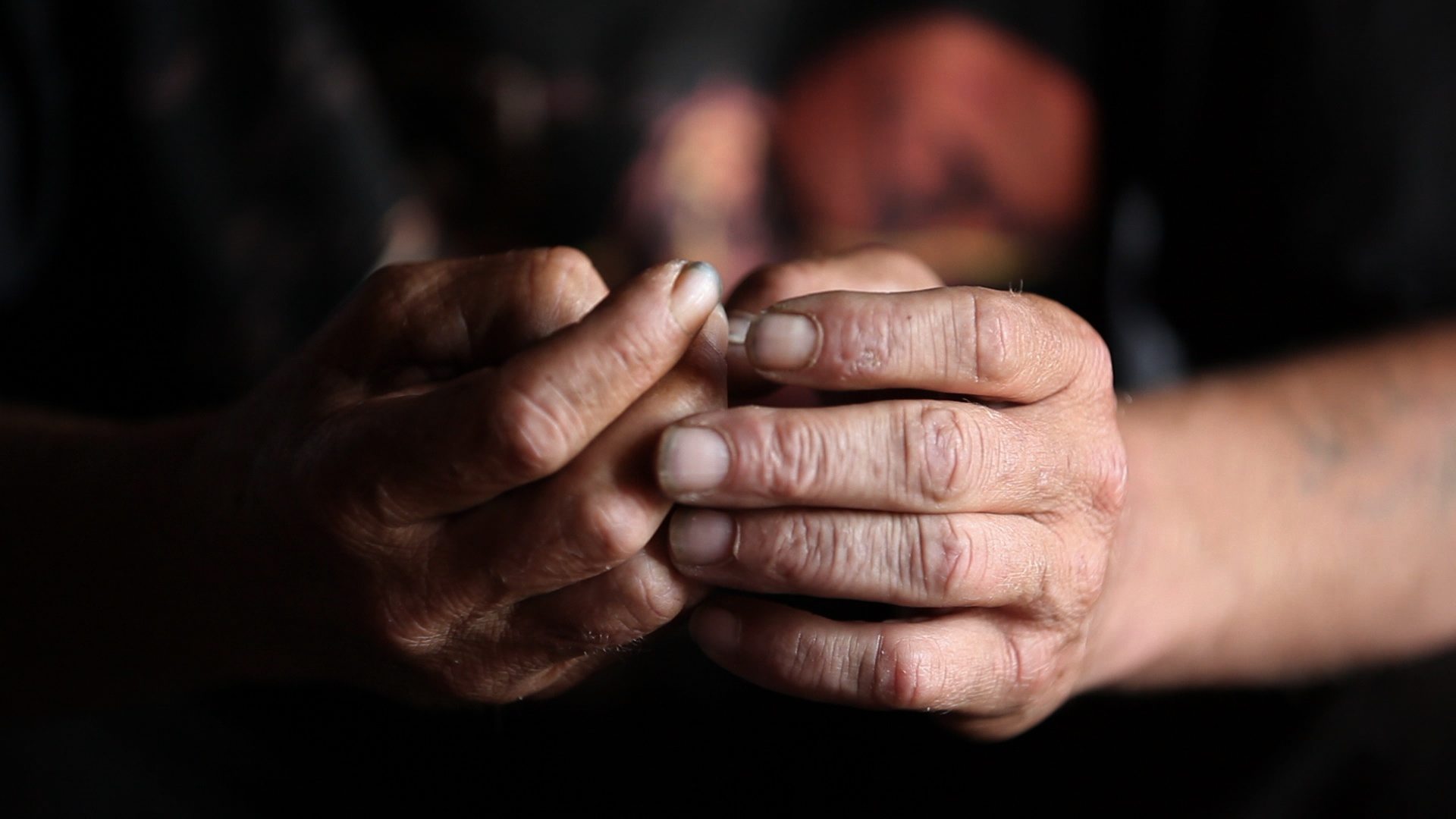
Cain’s Children (Between the Seas)
2. In its New Directors Competition, which was composed of 13 films, 2 of them were Eastern European documentaries: "Cain‘s Children" by Gero Marcell (Hungary) and „Toto & His Sisters“ by Alexander Nanau (Romania). So definitely, we feel there is something special in Eastern European documentary cinema these days - very high quality of some productions. Besides these two films, the festival this year organized a retrospective of films from Eastern Europe made since 2000 called „Eastern Promises“, and in the line-up there were about 10 documentaries.
3. San Sebastian film festival has not recently picked up Czech documentary films, but this is not indicative of any perspective. It is just that few documentaries make it to the San Sebastian Film Festival anyway, and it could also be that Czech documentary filmmakers are not fully aware that San Sebastian Film Festival could be an excellent launching platform for their films.
|
|
Oksana Sarkisova, Verzio festivalThe International Human Rights Documentary Film Festival takes place every November in Budapest. It is a festival with a significant cinematic view. It presents also retrospectives of directors, such as Chris Marker, and selections of Hungarian documentaries. Its vision is not only to follow human rights issues, but to think about the cinema itself as an observer of joy and helplessness. It aims to think about the potential of storytelling in dealing with the reality of our lives. |
1. Verzio is 11 year old Human Rights Documentary film festival in Budapest which hand-picks creative documentaries from all parts of the world and presents them to a highly motivated different age group audiences in Budapest. We facilitate the presence of those films which most of the time do not make it to the commercial distribution network on the Hungarian market and thus, the festival fills an important niche in circulating European and international films through the art-house cinema network. We feel a growing pressure of the commercial cinema network, also in documentary film distribution, but continue to support independent art house cinemas and alternative distribution channels. We feel there is a rather strong push experienced by the festivals to get uniformed in a sense of organizing similar market activities and anticipating an exponential growth, but we believe that festivals should keep their different profiles.
2. We closely follow the developments in Eastern European documentary cinema, our program always features a significant number of films from Eastern Europe in the international panorama and we also organize a Hungarian panorama. We believe that documentary cinema has a long and very valuable tradition in the region and evolved as an instrument of critical social analysis, as well as a form of creative expression already in the socialist period. One of the strongest developments that can be observed in all Eastern European documentary film cultures today is the appearance of the new forms for production and distribution, more and more companies enter coproduction schemes and work as international teams. These developments make the films more marketable on an international scale and also revive local film cultures.
3. Verzio is interested in new developments in Czech documentary cinema and has a long-term partnership with the Czech Center in Hungary which facilitates the presentation of Czech films. Hungary can also learn from the neighboring East European countries the ways of promoting documentary cinema internationally and initiating successful international co-productions.
Festival Hub will be held on Saturday October 25th from 7pm at DIOD, Tyršova 12. You can find out more about the other participants here.

